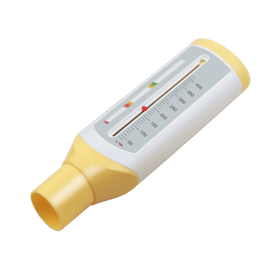Vprašanje stranke:
Katera bakterija povzroča bakterijsko pljučnico? Vprašanje anonimne stranke
Odgovor farmacevta:
Pljučnico lahko povzročijo različni mikroorganizmi, vključno z bakterijami, virusi, glivicami in drugimi mikrobi. Najpogosteje pa je pljučnica povzročena z bakterijo Streptococcus pneumoniae, ki je tudi poznana kot pnevmokok.
Poleg tega lahko pljučnico povzročijo tudi druge bakterije, kot so Haemophilus influenzae, Mycoplasma pneumoniae, Legionella pneumophila in drugi mikroorganizmi.
Kako dolgo traja bakterijska pljučnica?
Trajanje bakterijske pljučnice je odvisno od več dejavnikov, vključno z resnostjo okužbe, vrsto bakterije, ki jo povzroča, starostjo in splošnim zdravstvenim stanjem osebe ter ustreznostjo zdravljenja. Običajno se z jemanjem antibiotikov prične opažati izboljšanje v nekaj dneh po začetku zdravljenja. Vendar pa se lahko celoten proces okrevanja raztegne tudi na več tednov, še posebej pri ljudeh s kompromitiranim imunskim sistemom ali pri tistih z drugimi osnovnimi zdravstvenimi težavami. Pomembno je, da oseba upošteva zdravniška navodila, jemlje predpisane antibiotike v skladu z urnikom ter po potrebi upošteva druge ukrepe za izboljšanje zdravja, kot so počitek, hidracija in ustrezna prehrana.
Ali je bakterijska pljučnica lahko nevarna?
Da, bakterijska pljučnica lahko predstavlja resno zdravstveno tveganje, še posebej pri ranljivih skupinah, kot so starejši, dojenčki, ljudje s kompromitiranim imunskim sistemom in tudi tisti z osnovnimi zdravstvenimi težavami.
Nezdravljena ali slabo obvladovana pljučnica lahko povzroči resne zaplete, kot so:
- Sepsa: bakterije lahko vstopijo v krvni obtok in povzročijo sepso, ki je življenje ogrožajoče stanje.
- Empiem plevre: to je nabiranje gnoja v pljučnih votlinah, kar lahko zahteva drenažo.
- Pleuralni izliv: bakterije lahko povzročijo kopičenje tekočine med pljuči in prsnico.
- Akutni respiratorni distresni sindrom (ARDS): to je resno stanje, ki prizadene pljuča in lahko vodi v hudo dihalno stisko in celo odpoved.
- Endokarditis: bakterijska pljučnica lahko povzroči vnetje srčnih zaklopk.
Ali je bakterijska pljučnica nalezljiva?
Da, bakterijska pljučnica je nalezljiva. Večina primerov bakterijske pljučnice se prenaša s kapljicami, ki se formirajo med kašljanjem, kihanjem ali celo samo govorjenjem okužene osebe. Mikroorganizmi, kot so Streptococcus pneumoniae, se lahko prenašajo s stikom z respiratornimi izločki okužene osebe. Poleg tega je pomembno vedeti, da je zdravljenje z antibiotiki ključno ne le za zdravljenje okužene osebe, ampak tudi za preprečevanje nadaljnjega širjenja bakterij na druge ljudi. Zato je priporočljivo, da se okužena oseba izolira in upošteva ustrezne higienske ukrepe, kot so pogosto umivanje rok, kašljanje v robček ali komolec ter izogibanje tesnim stikom z drugimi ljudmi, dokler ni zdravljenje zaključeno.
Ali lahko dojenčki zbolijo za bakterijsko pljučnico?
Da, dojenčki lahko zbolijo za bakterijsko pljučnico. Pravzaprav so dojenčki in majhni otroci ena izmed ranljivih skupin za pljučnico, saj je njihov imunski sistem še vedno v razvoju, kar jih naredi bolj dovzetne za tovrstne okužbe. Bakterijska pljučnica pri dojenčkih se lahko pojavi zaradi različnih bakterij, vključno s Streptococcus pneumoniae, Haemophilus influenzae in drugih. Simptomi pri dojenčkih se lahko razlikujejo od simptomov pri odraslih in vključujejo težave z dihanjem, hitro dihanje, vročino, kašelj, izčrpanost, zavračanje hrane in razdražljivost. Če imate dojenčka, ki kaže znake pljučnice ali katere koli druge resne bolezni, je pomembno, da takoj poiščete zdravniško pomoč.
Zanimivo branje: Ali se pozdravi pljučna embolija?






 Facebook
Facebook
 Instagram
Instagram
 info@moja-lekarna.com
info@moja-lekarna.com

